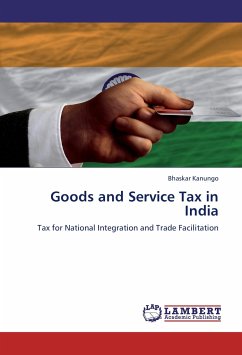Government of India, in order to usher indirect tax reforms, intends to introduce Goods and Service Tax (GST) in India. Under GST system a tax on goods and services, is levied at each point of sale of goods, supply of goods along with provision of services. Introduction and implementation GST will be a major breakthrough in the taxation history of India. If implemented properly, GST can help in widening of tax base in India. Despite its ambitious project and mammoth task of tax reform, in GST regime, goods and services are not differentiated as they move through the supply chain. GST is levied on the value added at each stage of sale and purchase or supply with an inbuilt credit mechanism such that the tax is a pass through for businesses, and the tax burden is borne by the ultimate customer. With the introduction of GST, the responsibility to collect tax on goods and services from customers will become the responsibility of sellers or service providers. Before depositing the collected tax to the exchequer, sellers and service providers deduct the tax they have already paid during the course of purchase of goods and service aimed for value creation.
Bitte wählen Sie Ihr Anliegen aus.
Rechnungen
Retourenschein anfordern
Bestellstatus
Storno








